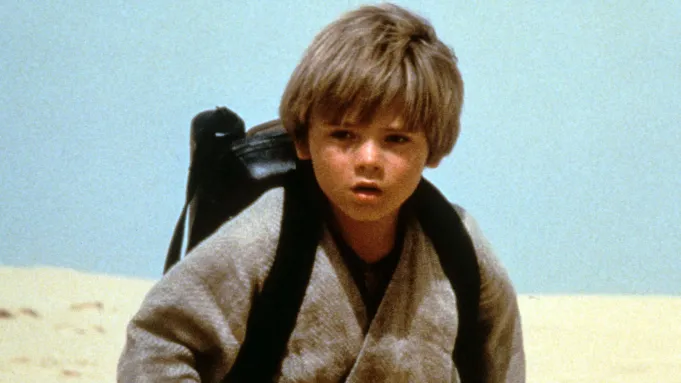As the iconic “Star Wars Episode I: The Phantom Menace” approaches its 25th anniversary, fans worldwide celebrate the silver screen magic that introduced us to the young Anakin Skywalker. However, amidst the fanfare and nostalgia, one key cast member remains conspicuously absent: Jake Lloyd.
The Rise to Fame
Chosen from a pool of over 3,000 hopefuls, Jake Lloyd stepped into the role of producing prodigy and future Jedi-to-be Anakin Skywalker. His cherubic face and innocent eyes captured hearts, but little did anyone know the challenges ahead for this child star.
The Disappearance
After the film’s release, Jake Lloyd vanished from the public eye. His life became a mystery to devoted fans who wondered what had happened to the young actor. May 1999 marked the beginning of his journey into fame, but it also set the stage for struggles shaping his adulthood.
Troubled Waters
Jake’s troubles began in high school. His personality transformed, and he started talking about alternate “realities.” Lisa Lloyd, Jake’s mother, recalls those perplexing moments when her son questioned whether he existed in this reality or another. It was a disturbing experience for any parent.
The Unseen Battle
Unbeknownst to Lisa, Jake heard voices, saw people with “black eyes” on the street, and even engaged in late-night conversations with “Daily Show” host Jon Stewart through his television. The signs were there, but the diagnosis remained elusive.
The Diagnosis
In 2008, Jake enrolled at Columbia College Chicago, hoping to pursue his passion for the arts. However, his time there was fraught with challenges. He missed classes, felt followed, and grappled with an internal struggle that defied explanation. Eventually, a series of appointments with therapists and psychiatrists led to a diagnosis: paranoid schizophrenia.
The Weight of Schizophrenia
Schizophrenia is an umbrella term that encompasses delusions, hallucinations, disorganized speech, and a lack of motivation. For Jake, it impacted every aspect of his life. But there was an additional layer of complexity: anosognosia. This neurological condition made Jake unaware of his symptoms or unconsciously in denial about them. He believed he didn’t need medication or therapy because he wasn’t “sick.”
A Mother’s Hope
Lisa Lloyd’s unwavering support has been Jake’s lifeline. She speaks out to share her son’s story, hoping to raise awareness about mental health. Despite the challenges, Lisa remains hopeful. Jake’s journey is a reminder that fame doesn’t shield anyone from internal battles.
Conclusion
As we celebrate the legacy of “Star Wars,” remember Jake Lloyd—the child actor who faced the dark side off-screen. His struggles are a testament to the importance of compassion, understanding, and breaking the stigma surrounding mental health. May the Force be with him on his ongoing journey.
Note: Jake Lloyd’s story sheds light on the complexities of mental health, emphasizing the need for empathy and support. Let us continue to learn, listen, and advocate for those facing similar battles.



